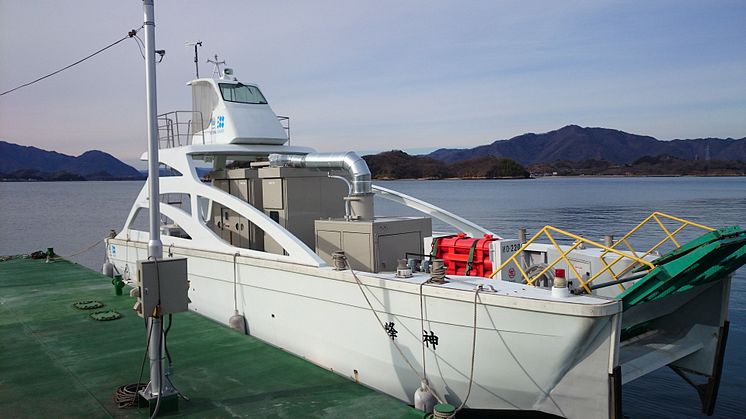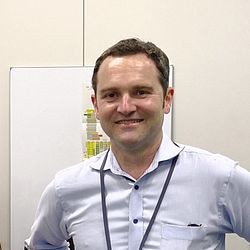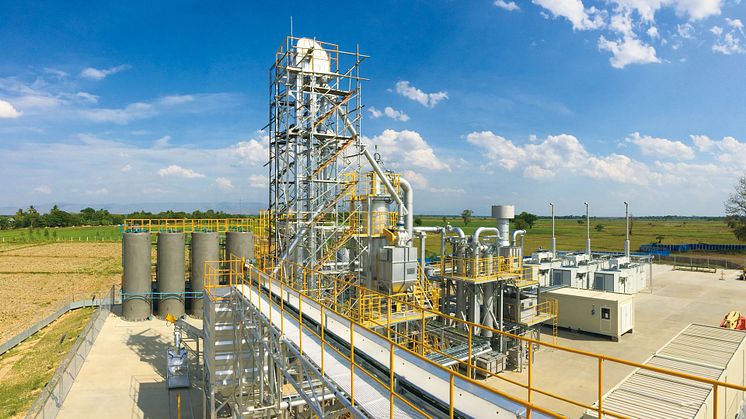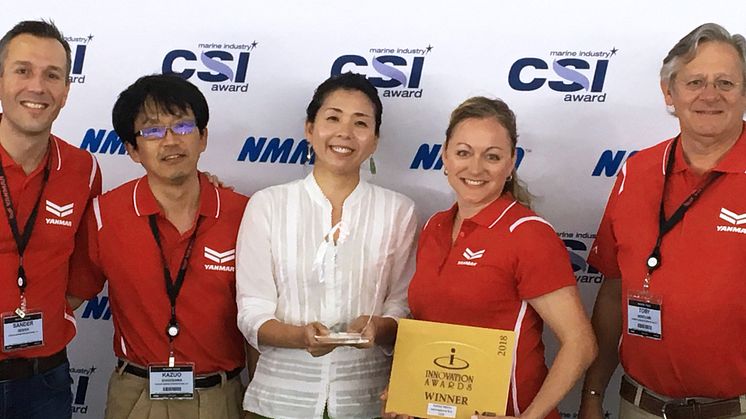
News -
Yanmar Trials New Energy Source in Japan
In Japan, YANMAR Co., Ltd. has participated in a test of a hydrogen fuel cell-powered boat, under the auspices of the Japanese Ministry of Land, Infrastructure, Transport and Tourism (MLIT). The aim of the research project is to draft guidelines for safety of hydrogen fuel cell-powered boats. The combination of hydrogen energy and fuel cells is a promising technology for use as a new, electrical power source for electric motors propelling vessels and vehicles, and as a source of heat and electricity for buildings.
New, zero-emission energy source
Hydrogen is a new source of energy and is considered as a high efficiency, low polluting fuel. Besides, it is abundantly available. One way to produce energy from hydrogen is to directly convert the chemical energy within hydrogen to electricity using electrochemical fuel cells. The only byproducts are pure water and heat, producing zero emission.
NASA
Currently, hydrogen energy is still quite innovative: it is mainly used as a fuel in the NASA space program to propel space shuttle and other rockets, while hydrogen fuel cells power the electrical systems of the shuttle. The hydrogen fuel cell is also used to produce pure water for the shuttle crew.
Field tests to confirm safety
As part of a consortium, YANMAR supported the development of the draft guidelines for safety of hydrogen fuel cell-powered boats. In the final phase of the three-year plan, the consortium carried out a field test using a 60 kW hydrogen fuel cell system and successfully verified the safety requirements for the hydrogen fuel cell system.
The design of the hydrogen fuel cell system
Fuel system tech talk
The 60 kW maritime fuel cell system prototype has been developed through collaboration between YANMAR and Toyota Tsusho with modules from Ballard Power Systems Inc. of Canada. The fuel cell system was installed on the test boat provided by the National Maritime Research Institute (Japan) with a lithium-ion battery system developed by Uzushio Electric Co., Ltd. The test verified the safety requirements for both the hydrogen fuel cell system and the lithium-ion battery system.
Continued research and development
In line with our mission for a sustainable future, YANMAR is obviously very excited about the results and we will continue research and development towards refining the capabilities of the maritime fuel cell system for the use on hydrogen fuel cell-powered boats. What could be a potential market for hydrogen fuel cell-powered boats? As tour boats, for example, operating in urban waterways. As a member of the maritime cluster, YANMAR will continue to cooperate with government, industry and academia on development of hydrogen fuel cell-powered boats and ships.
 Control screens for the hydrogen fuel cell system
Control screens for the hydrogen fuel cell system
Test Boat – Key Specifications
Name: Shimpo
Material: fibre reinforced plastic (FRP)
Gross tonnage: 17 tons
Centreline length: 16.5 meters
Test area: a radius of 4 nautical miles around Kushihana, Innoshima, Shigei-cho, Onomichi, Hiroshima Prefecture
Maximum speed at full load: 11.5 knots (9.0 knots at electric propulsion)
Fuel cell system: polymer electrolyte fuel cell system (Yanmar) 60 kW x 1
Secondary Battery System: Lithium-ion Battery system (Uzushio Electric Co., Ltd.) 60 kWh
Propulsion motor: IPM motor 50 kW x 2
Inspection organisation: Japan Craft Inspection Organization



